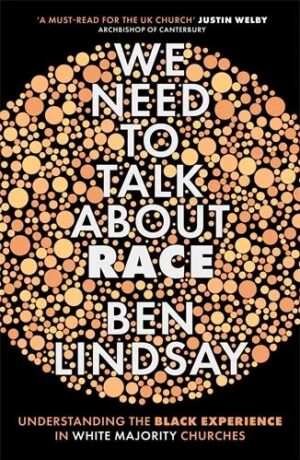



You can’t understand the important things from a distance. You have to get close.
Brayan Stevenson, American lawyer, social justice activist and directory of the Equal Justice Initiative
Well done for making it to the final session of this four-part study. We will focus on chapters seven and eight of the book as we consider social action and the road ahead. Ben informs us about segments of the church that have moved past social action and engaged in social justice. Black theologian Robert Beckford says, ‘there is a difference between ‘social welfare’ – serving the needs of the community practically – and ‘social justice’ – campaigning and advocacy, dismantling and addressing the structures that left the community in dire straits in the first place’. As we look forward we will discuss how we ‘do justice’ and how we stand in solidarity together as believers against racial injustice and seek unity and change.
Watch Ben’s video then see the icebreaker question below.
If you could fix any societal problem, what would it be? How would you do it?
Read this quote from We Need to Talk about Race (p129):
‘There is a familiar African proverb about villagers who keep on finding floating children in the river at risk of drowning. This strange occurrence happens again and again. The villagers keep on pulling the children out of the river, saving them in the process. Suddenly, the whole community is involved and, while not all the children can be saved, the villagers are congratulated for their efforts. One day, however, someone raises the questions, ‘But where are all these children coming from? Let’s organise a group to head upstream to find out who’s throwing all these children into the river in the first place!’
As a group, discuss your experience of charity, social action and campaigning. The questions below may help:
African American pastor and academic Anthony Bradley claimed that ‘Generally in the black church, you learn about Jesus through Moses. Evangelicals, [through] Paul. That’s why Evangelicals struggle with social issues’. Ben argues that the focus on the grace of God for personal salvation in the white evangelical church make it harder to see how the Word of God speaks to societal justice issues. The call on the church is for Christians to be invested in the redemption of entire cultures not just individuals.
Ben founded the charity Power the Fight to empower communities to end youth violence. Between 2015-2017, seven young people were murdered in the London borough of Lewisham. They were all black. The church Ben pastored was able to help with financial support for three of the families along with pastoral care and support with funerals and engagement with local MP’s for rehousing. That is just one example of the scope of the church’s mission – there are more examples in the book.
It can be difficult not to feel overwhelmed when considering a response to an injustice as evil, complex and multi-faceted as racism. Thankfully, the book of Acts and the birth of the New Testament church show us how the breaking down of barriers and the ability to engage cross-culturally is work initiated by the Holy Spirit.
The coming of the Holy Spirit was a sign that the dividing wall of hostility had been broken down. Instead of the dominance of a single language, the tongues of fire gave voice to the multitudes from all over being able to hear the mighty works of God in their own native language (Acts 2:1-13). As we fast forward to Acts 10 the boundary crossing interaction between Peter a Jewish man and Cornelius a Roman military captain, demonstrates God’s impartiality towards humanity and the power of the Gospel to bridge ethnic, national and cultural boundaries.
Pray that we find ways to seek racial justice and engage with issues affecting our black and brown brothers and sisters in the local community.
Pray that we affirm and celebrate the Image of God in our black and brown brothers and sisters.
Pray that we will draw from the rich diversity of Biblical and Theological thought to form a wholistic view of the gospel and how it impacts both the individual and society.
Over the four sessions there may be topics or themes that you have covered as a group that you want to pray in to, take time out to pray for those things.
If recent events have taught us anything it is that followers of Jesus are called to a radical love that transcends cultural boundaries, political ideologies and racial lines. The division and disunity in the world around race related issues is disheartening to say the least, but our hope is not in society or government but the finished work of Christ on the cross. It takes people of all racial backgrounds to lead in the Biblical pursuit for racial justice and before we move forward we have to look back at the racial legacy of the church. When we do, we realise that there is much to lament, but there is also hope. The aim is not to promote white guilt or black spokespeople but for us to open our hearts to the Spirit of God and unmute our voices so we become active obedient agents of change. The world needs racial unity and a multicoloured picture of hope. Now is the time to shine a light on the darkness of racism and reflect the light of Jesus to others. We need to talk about race.